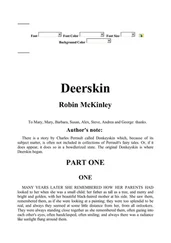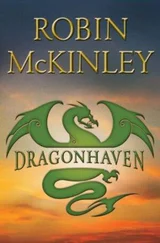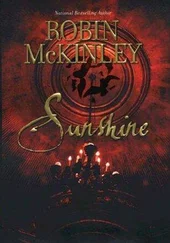Robin McKinley - Water
Здесь есть возможность читать онлайн «Robin McKinley - Water» весь текст электронной книги совершенно бесплатно (целиком полную версию без сокращений). В некоторых случаях можно слушать аудио, скачать через торрент в формате fb2 и присутствует краткое содержание. Год выпуска: 2002, ISBN: 2002, Издательство: Firebird, Жанр: Старинная литература, на английском языке. Описание произведения, (предисловие) а так же отзывы посетителей доступны на портале библиотеки ЛибКат.
- Название:Water
- Автор:
- Издательство:Firebird
- Жанр:
- Год:2002
- ISBN:9780142402443
- Рейтинг книги:4 / 5. Голосов: 1
-
Избранное:Добавить в избранное
- Отзывы:
-
Ваша оценка:
- 80
- 1
- 2
- 3
- 4
- 5
Water: краткое содержание, описание и аннотация
Предлагаем к чтению аннотацию, описание, краткое содержание или предисловие (зависит от того, что написал сам автор книги «Water»). Если вы не нашли необходимую информацию о книге — напишите в комментариях, мы постараемся отыскать её.
Water — читать онлайн бесплатно полную книгу (весь текст) целиком
Ниже представлен текст книги, разбитый по страницам. Система сохранения места последней прочитанной страницы, позволяет с удобством читать онлайн бесплатно книгу «Water», без необходимости каждый раз заново искать на чём Вы остановились. Поставьте закладку, и сможете в любой момент перейти на страницу, на которой закончили чтение.
Интервал:
Закладка:
“But not the true story,” said Tamia.
“That’s as you choose, my dear,” said her Guardian. “But I would like to tell it, if you will let me—and we shall have some trouble making Water Gate keep silent.”
Tamia looked towards the tea-table; there were only two cups laid out, and two plates.
“Water Gate has gone, back to his home,” said her Guardian. “He left a message for you: well done.” She laughed at the expression on Tamia’s face. “He was particularly impressed by your use of the seventh stone—although he would have made you put it with the others if he had known, and none of them in the yew either. He said to tell you, Not even Guardians know everything—and that Western Mouth had chosen better than he could have guessed. He added some rather unflattering things about me, but you don’t have to hear them.”
Tamia scowled, because no one was allowed to say unflattering things about her Guardian. But she was distracted by a grey nose thrust under her arm. She stroked it, and said sadly, “I suppose, if we tell the story, we shall be able to find out who she—they—belong to.”
“They belong to you,” said her Guardian. “Do you think any islander would deny a Guardian’s token so chosen? Nor do I think these two would cooperate about being given back. We can find out who they used to belong to, if you would like to learn the mare’s name, and your foal’s daddy.”
“I do not care about names or bloodlines. I can name them myself, and they are who they are,” said Tamia. “But I would like whoever lost them to know that they are safe and well.”
“Then that is what we will do,” said her Guardian. The foal was sucking interestedly at her sleeve. “I have told you before that Guardians have never had familiar animals; I believe you are about to begin a new tradition.” She removed her sleeve from the foal’s mouth; he gave her a wounded look, and stepped on her foot as he turned away towards his mother, and milk. “Ouch. I hope I am not too set in my ways to adjust.”
KRAKEN

T hey wore traveller’s clothes, tight-laced against the sea wind, she all in grey, he in worn brown leather. They leaned on the taffrail and stared aft. Now they could see the pursuing sail, of which the lookout’s cry had told them an hour ago.
“Can it be one of my father’s?” she said.
“How should it have found us, with all the wide ocean to search?”
Now the captain came and watched with them for a while.
“That is no merchantman,” he said. “And no warship either. She follows too fast. My lord, you had best arm yourself. My lady, will you go below?”
Keeping to shadows, without seeming to be lurking, moving as if she were going nowhere in particular, Ailsa drifted along the mountain spur. Far above glittered the bright sunrise. Once over the first ridge, she changed course and headed directly along the slope to the cranny where she kept the spare harness. While she fetched it out and sorted it through, she whistled once, twice, and again. Now Carn came surging towards her, circled a couple of times to show that he didn’t need to have come at her call, but had chosen to do so, took the titbit from her hand and let her slide the harness over his head.
As she was fastening the cheek buckle, she heard the school bell ring, calling her for the last time. She did not falter. Nor did she smile as she used to when she was younger, from childish bravado, setting out on another illicit ride, worth the consequences for the fun of it. To-day was different. To-morrow the school bell would be silent for the holidays, and when it next rang, it would do so for others.
Why not wait for to-morrow, then, when she would be free to ride out as she chose?
For that very reason. To-day she would say good-bye to childhood.
Carn flicked his tail, impatient.
“Oh, all right,” she said aloud.
She clipped herself into the harness, laid her body along his with her hip beside the big forefin, tapped her tail against his flank, and streamlined herself to the rush of water as he surged away.
Now she did smile. It was impossible not to. To Ailsa, as to all merfolk, riding a blue-fin who really wanted to go was the finest thing in the ocean. You didn’t need to be a child to feel like that.
They returned to the taffrail, he in dark armour that had clearly seen service, she in a long green cloak. By now the following ship was hull up, half again both their size and speed. A black flag strained at the mast-head. The captain, still watching, turned and frowned.
“My lady, you should be below.”
“Are you going to fight?”
“What else can we do? If we surrender, they will still slit our throats. A lucky shot may bring down her mast.”
“Then I will fight too. My lord has spare pistols. I know the use of them.”
Blue-fin have three main paces—drift, pulse and surge. Carn was still at full surge, delighted to be going somewhere, anywhere. Ailsa twitched the bit in his mouth.
“Easy,” she told him. “Easy. We’ve got all day.”
He responded as much to her voice as to the bit and slowed to a steady pulse, heading up to just below the wave-roots, where the going was still smooth, and the water golden with morning. Later, when they were beyond pursuit, they would practise some wave leaping. Carn was still young, Ailsa’s first blue-fin—as a child she had ridden the smaller yellow-fin. The waves today were just about right for schooling him, steady in their march, tall enough for him to get the point, but not so tall that he might lose confidence.
Merfolk have an innate sense of direction, and Ailsa knew where she was heading, south-southwest, out over the Grand Gulf, a vast empty tract with immeasurable depths below. Nobody had much business out this way, so it was here that she was least likely to be seen. She had kept the same course for almost an hour when she heard the thunder.
Thunder, on a day like this? And there was something odd about the sound. It had the right deep roll but came jarring through the water as if it had begun there, somewhere ahead and to the left, rather than spreading more vaguely down from the distant sky.
Again! And Carn had faltered in his rhythm, as he did when surprised. And again. Ailsa turned him towards the sound. No, not thunder—too short a rumble, and too regular. A boom, a pause. Another boom, and pause. Another. Now straight ahead. After several more booms she began to sense the distance, a few hundred lengths only. And from above the surface, not below.
Half consciously she had kept aware of the pattern of broad stripes, light and dark, that marked the sunlit and shadowed slopes of the waves above, running slantwise to her path. She headed Carn to cross them square, picked one wave and, watching it intently, pulled him into a climb and flicked him to full surge, aiming a fin and a half below the moving wave crest. In the last few strokes she lashed her own tail in rhythm with his to add to the speed of the outstrike.
The idea was to leave the wave as high as possible, so that your two bodies were well up into the burning air while the blue-fin’s tail still had water to drive against. Then you saw how many wave crests you could clear before the instrike. But the confusion of the moving wave roots through which you were aiming made it harder than it may sound, and this time Ailsa struck so low that they barely cleared the first crest. This was just as well, as it gave them a soft instrike, and she wasn’t ready for it. She’d been distracted by what she’d glimpsed across Carn’s shoulder at the top of the leap. Two great ships of the airfolk.
Читать дальшеИнтервал:
Закладка:
Похожие книги на «Water»
Представляем Вашему вниманию похожие книги на «Water» списком для выбора. Мы отобрали схожую по названию и смыслу литературу в надежде предоставить читателям больше вариантов отыскать новые, интересные, ещё непрочитанные произведения.
Обсуждение, отзывы о книге «Water» и просто собственные мнения читателей. Оставьте ваши комментарии, напишите, что Вы думаете о произведении, его смысле или главных героях. Укажите что конкретно понравилось, а что нет, и почему Вы так считаете.












